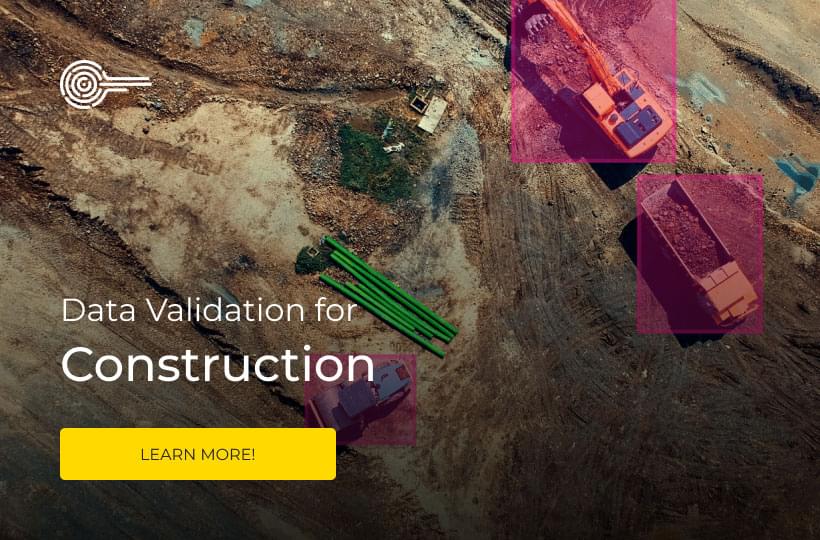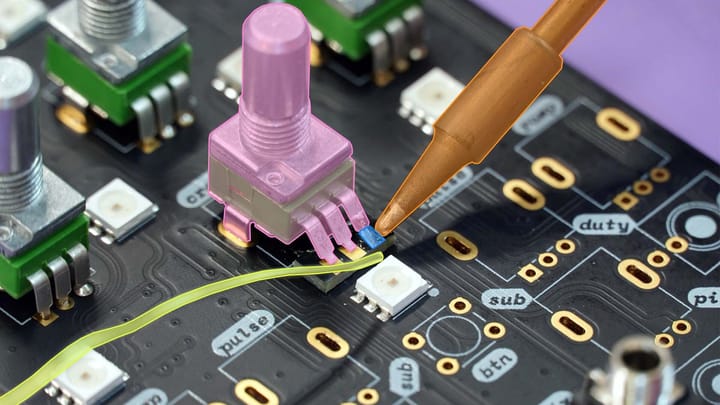Building with Brains: How AI and Machine Learning are Transforming Construction

Did you know artificial intelligence mentions in industries surged by 77% over the last year? The construction sector is riding this wave too. AI and ML have become key in boosting efficiency, safety, and productivity on job sites. These advancements are powered by the vast computing resources of the cloud, making AI and ML more sophisticated than ever in construction.
The influence of AI and ML in construction spans from design to maintenance. They use extensive data and algorithms to perform tasks once done by people. This revolution in machine learning highlights its importance in today's construction project management.
Key Takeaways
- AI and ML enhance efficiency, safety, and productivity in the construction industry.
- Powerful cloud computing resources facilitate the development of advanced AI models.
- Applications include generative design, risk management, and predictive maintenance.
- High-quality data is essential for the effectiveness of AI and ML algorithms.
- Integrating AI and ML into construction workflows provides a competitive edge.

Introduction to AI and Machine Learning in Construction
Integrating AI advancement within the construction sector has fundamentally changed its landscape. Now, tedious tasks can be automated, and decisions are based on data. Thus, machine learning in construction has become crucial.
Definition of AI and ML
Artificial Intelligence (AI) enables machines to replicate human cognitive functions, such as learning and problem-solving. Meanwhile, Machine Learning (ML) allows computers to independently learn from data and predict outcomes. Together, they are redefining construction efficiency and innovation. Innovations now include predictive analysis and automation of construction processes.
The Rise of AI in Various Industries
AI is reshaping various sectors, including healthcare and entertainment. For example, Netflix uses AI to predict what users prefer to watch, enhancing the user's experience. In construction, AI advancement leverages the abundance of data, lower computing costs, and greater computational capabilities. This revolutionizes both project planning and execution.
Importance of Data in AI Development
At the core of AI and ML innovation lies data. By utilizing predictive analysis, AI can identify complex patterns that might go unnoticed by humans. The construction industry, with its vast data collection, gains significantly from this. For example, analyzing data on resource distribution and project delays helps avoid excessive costs and enhances project delivery. Through widespread digitization, potentially unlocking $1.6 trillion annually, AI and automated construction processes significantly boost efficiency and safety in construction projects.
AI in Construction Explained
The integration of AI technology in the construction sector has drastically transformed conventional approaches. This new phase introduces heightened accuracy and efficiency. The digitization of construction workflows with AI simplifies complex activities. It enables automation, enhances decision-making, and significantly uplifts project outcomes.
Understanding the Concept of AI in Construction
AI's role in construction refers to intelligent systems that simulate human decision-making to predict results and streamline operations. These include autonomous machinery and AI-powered solutions, which function around the clock with sophisticated safety features like 360-degree surveillance. For example, the SmartBuild system uses Microsoft's Azure AI to improve and automate operations, leading to well-informed decision-making.
How AI Differs from Traditional Construction Methods
AI and conventional construction vastly differ in how they manage and use extensive data. AI methods make precise predictions and refine workflows. Traditional approaches are often slow and error-prone due to manual, straightforward decisions. In contrast, AI technologies implement learning algorithms for predicting maintenance needs and improving safety and design optimization.
Autodesk’s Construction IQ, for example, uses automated risk analysis for safer, faster project completion. DroneDeploy and similar AI-driven drone services offer superior site inspections by recognizing patterns undetectable to the human eye. AI enhances collaboration, resource utilization, and real-time analysis, leading to better project results and higher client contentment.
| Traditional Methods | AI-Powered Methods |
|---|---|
| Manual risk analysis | Automated risk analysis (e.g., Construction IQ) |
| Manual inspections | AI-driven inspections (e.g., AI-powered drones) |
| Linear project planning | Predictive scheduling with AI |
| Manual tracking of labor and materials | AI-enhanced labor tracking (e.g., AlwaysAI) |
| Reactive maintenance | Predictive maintenance with AI |
Benefits of AI in Construction
AI technology is remarkably advancing the construction industry. It enhances site efficiency, boosts job safety, and drives down costs. These improvements are transforming traditional construction practices. Thus, AI has become essential in modern construction endeavors.
Improved Efficiency and Productiveness
AI greatly enhances construction site operations by streamlining various tasks. For example, tools like Autodesk's AutoCAD optimize workflows. They automate routine duties and lessen manpower requirements. This ultimately boosts efficiency.
Per the 2023 State of Design and Make report, 66% of leaders in the sector see AI as crucial within two to three years. AI tools save estimators about 14.5 hours for each plan set. This highlights AI's pivotal role in increasing work productivity.
Enhanced Safety Measures
AI notably advances job site safety by preempting potential accidents. It identifies risk patterns, enhancing precautionary measures. AI-powered safety tools monitor live footage to spot hazards, using advanced technologies.
For instance, Dozer's computer vision tech provides a complete safety oversight. It observes equipment closely to avert mishaps. Furthermore, AI aids in training through realistic safety simulations. These contribute to a more secure work environment.
Cost Savings and Budget Management
AI plays a significant role in cost reduction in construction projects. It enables precise and swift estimations, ensuring budget adherence. Products like Autodesk's Construction IQ use AI for automated risk evaluations. This is crucial for managing budgets effectively.
AI takeoff software boasts a 98% accuracy in estimations, completed in less than a minute. This showcases AI's effectiveness in financial planning and estimation processes. Such innovations underscore AI's value in cost management.
| Benefit | Impact |
|---|---|
| Improved Efficiency | Saves 14.5 hours per plan set |
| Job Site Safety | 360-degree safety monitoring |
| Cost Savings | 98% accurate takeoffs in under a minute |
Explore BuildBite's comprehensive guide for more in-depth analysis on AI's role in construction.
AI Applications in the Construction Sector
AI applications have transformed construction, bringing innovative solutions that boost efficiency, safety, and cost savings.
Generative Design and Conceptual Development
Generative design leverages AI to evaluate countless design alternatives. It optimizes for factors such as materials, space, and cost. AI can turn 2D plans into 3D models with up to 95% accuracy, making design processes more efficient. By using AI, designs become more effective and visually appealing, ensuring optimal resource use.
Pix4D's technology excels in generating 3D models from aerial photos, improving site monitoring and inventory management. With these AI tools, architects and engineers can craft sustainable, practical building plans. These plans enhance energy use and air quality through smart design choices.
Automated Risk Management
AI profoundly impacts construction risk management. AI-driven cameras monitor site safety through advanced image recognition, recognizing hazards like missing protective gear. This proactive approach significantly boosts work site safety.
Moreover, AI analyzes past project data to predict and counter potential issues, enhancing risk management from reactive to proactive and predictive. This shift reduces human error and time, keeping projects on track and budget.
Predictive Maintenance and Equipment Management
Predictive maintenance is vital for minimizing downtime and enhancing efficiency. AI tech predicts equipment failures through sensor data. For instance, Caterpillar Inc. has cut machinery breakdowns and increased efficiency using this tech.
AI also aids in material and equipment recognition, improving site inventory management and reducing project delays. By simulating building data, AI provides structural improvement suggestions for better construction lifecycle efficiency and effectiveness.
| Company or Technology | Application | Impact |
|---|---|---|
| Pix4D | 3D Models from Aerial Imagery | Enhanced Site Monitoring and Inventory Management |
| Caterpillar Inc. | Predict option ive Maintenance Technology | Reduced Downtime and Increased Operational Efficiency |
| AI-driven Cameras | Safety Monitoring | Improved Site Safety and Hazard Detection |
Role of AI in Modern Construction Projects
The integration of artificial intelligence (AI) is reshaping construction management. It enhances project planning, resource allocation, and quality assurance. With AI, productivity, efficiency, and safety are significantly improved.
Project Planning and Scheduling
AI-driven project planning utilizes data from past projects to forecast timelines and task distribution. In schedule management, it warns managers of possible delays. This proactive stance saves time and cuts costs, driving project success.
"AI-powered project management tools contribute to identifying potential delays or cost overruns, aiding companies in staying within budget and on schedule throughout the project."
Resource Allocation and Management
AI profoundly impacts resource management by forecasting material and labor needs, enhancing efficiency. AI collaboration tools promote instantaneous data exchange and decision-making, further refining resource use.
- Resource optimization: AI identifies opportunities for efficient use of materials and labor.
- Sustainability: AI assists in reducing energy consumption and emissions.
Learn moreabout how AI is transforming construction management.
Quality Assurance and Control
AI systems significantly contribute to quality assurance, surpassing traditional oversight. Real-time AI sensors maintain high standards, minimizing errors. This ensures projects meet deadlines and budgets, satisfying both clients and regulators.
Predictive maintenance enabled by AIfacilitates preemptive equipment care, minimizing interruptions. Additionally, autonomous AI vehicles improve both safety and efficiency by reducing human involvement.
| Role of AI | Impact |
|---|---|
| Project Planning | Predicts timelines, enhances task allocation |
| Resource Management | Optimizes resources, reduces waste |
| Quality Assurance | Monitors quality in real-time, mitigates errors |
AI's incorporation in construction leads to better efficiency, sustainability, and progress. It places companies at the cutting edge of industry advancement.
Implementing AI in Construction Projects
Integrating AI into construction boosts efficiency, safety, and productivity significantly. The path to AI adoption requires strategic planning and surmounting obstacles. With 92% of construction firms moving towards AI, defining clear implementation steps and solutions is crucial. This shift demands not just technology but also a transformation in mindset.
Steps to Integrate AI into Construction Workflows
To successfully incorporate AI into construction workflows, companies need a well-defined strategy. The strategy involves several key steps:
- Gather Quality Data: Collecting reliable data is essential. Aviad Almagor points out the importance of improving data management, a historical challenge in the industry.
- Select Appropriate AI Tools: Selecting suitable AI technologies, like drones and design tools, is crucial for enhancing construction processes.
- Train Staff: Embracing tech in construction demands proficiently training the workforce to handle new tools effectively.
- Collaborate and Share Data: Industry-wide collaboration facilitates information sharing, which is vital for AI's successful integration.

Challenges and Solutions in AI Implementation
The construction sector faces various AI implementation hurdles, yet they are not unbeatable. A significant 65% of companies have marked success, indicating improvement opportunities. The main obstacles include:
- Data Quality and Management: AI's efficiency is compromised by data silos and disorganized information. Solution: Improve data integration practices to ensure data is comprehensive and of high quality.
- Integration with Existing Systems: Integrating AI with established systems poses complexity. Solution: Incorporate AI tools that can easily adapt to existing processes.
- Upfront Costs: Initial investments are notable. Solution: Look beyond the initial cost to the long-term advantages like enhanced efficiency and the potential for increased market capitalization, with McKinsey forecasting a $1.6 trillion annual boost.
Despite these hurdles, the AI in construction market is experiencing rapid growth, from $496.4 million in 2021 to an expected $8.6 billion by 2031. This growth reflects the substantial benefits of effectively integrating AI in construction.
| AI Implementation Challenges | Solutions |
|---|---|
| Data Quality and Management | Improve data integration; ensure high-quality data |
| Integration with Existing Systems | Invest in adaptable AI tools |
| Upfront Costs | Focus on long-term efficiency and market growth |
Case Studies of AI Technology in Building Projects
Real-world AI project case studies reveal the transformative role of AI in construction. They show AI's contribution to enhancing project efficiency, design innovation, and operations. This insight comes from successes across various projects.
Project Success Stories
Fort Worth, Texas, demonstrates the success of AI in construction clearly. Using Autodesk's generative design has notably improved urban planning. Similarly, Aconex applies AI for better data analysis, leading to streamlined construction processes.
Ctrack leverages AI to analyze fleet data, enhancing management and cutting costs. On another front, Safesite uses AI for identifying safety risks, thus improving site safety protocols.
- Generative Design by Autodesk: Transforms urban planning in Fort Worth.
- Aconex: Enhances data analysis and predictive capabilities.
- Ctrack: Optimizes fleet management using telematics systems.
- Safesite: Predicts safety hazards to improve workplace safety.
Lessons Learned and Best Practices
From these AI integration stories, it's clear that high-quality data is crucial for AI and ML. It ensures the accuracy and efficiency of these technologies in managing projects.
Best practices in the construction realm stress the importance of thorough data analysis for decision-making. Evolving AI models continuously and collaborating with tech providers are also key. They ensure AI solutions remain effective and relevant.
- High-Quality Training Data: Crucial for effective AI and ML algorithms.
- Comprehensive Data Analysis: Enhances informed decision-making.
- Continual Model Refinement: Keeps AI solutions relevant and accurate.
- Collaboration with Tech Providers: Ensures tailored AI solutions.
| Project | AI Integration | Results Achieved |
|---|---|---|
| Fort Worth, TX | Autodesk Generative Design | Enhanced urban planning and infrastructure |
| Aconex | Data analysis and predictive analytics | Optimized workflows and productivity |
| Ctrack | Vehicle telematics systems | Improved fleet management |
| Safesite | Safety hazard predictions | Improved onsite safety |
Future of AI in the Construction Field
The future of construction AI holds transformative potential across many aspects of the industry. It's influencing workflows and designs toward more efficiency, reduced costs, and increased safety.
Emerging Trends
Looking ahead, key trends in construction technology are emerging strongly. AI-powered sensors and cameras now monitor sites in real time. This ensures the detection of hazards and risks, making construction sites safer.
AI is revolutionizing the planning and design stages too. It uses data from past projects to enhance cost-efficiency and overall project quality.
Potential for Further Innovation
The path to the future with AI is ripe for greater innovation. Technologies such as natural language processing and deep learning are set to revolutionize the industry. For example, AI enables more effective quality control by monitoring in real-time. This helps avoid errors, ensuring projects meet top standards and regulatory compliance.
AI-based project management tools are pinpointing potential delays and budget issues. This keeps projects on track and within financial plans. Predictive maintenance, powered by AI, significantly cuts machine downtime and extends their usable life. This trend shows the construction industry's move towards better equipment efficiency and longevity.
To dive deeper into this evolving field, check out insights from leading experts on the future of AI in construction.
The Impact of ML on Construction Decision-Making
Incorporating ML into strategic planning has revitalized construction management. Through decision-making with ML, accuracy in predictions and complex project insights have transformed the field. This integration of artificial intelligence guides leaders in making data-driven decisions, which enhance resource optimization and risk reduction.
Artificial intelligence's significance in construction has surged, with its application mentions up by over 77% since 2022. ML's algorithms manage multiple dimensions, extending benefits well beyond conventional decision-making. These algorithms surpass human capacity, which typically processes three to four data points, by analyzing vast datasets.
- Vast amounts of data stored and processed in the cloud enhance decision-making, providing real-time adjustments and highly accurate predictive analyses.
- Generative design in construction allows for the exploration of numerous design permutations, improving scheduling and coordination among stakeholders.
- AI technologies are increasingly used for risk mitigation, enhancing schedule management, and implementing safety measures.
The integration of technology in construction workflows positions AI as a cornerstone for modern projects. Strategic ML use boosts efficiency, productivity, and overall project outcomes. Furthermore, the explosion of data recently—90% produced in the last two years—empowers AI to offer precise predictions and strategies.
| Aspect | Traditional Approach | ML Integration |
|---|---|---|
| Data Processing Capacity | Limited (3-4 data points) | Unlimited dimensional processing |
| Risk Management | Predominantly manual | Automated, predictive analytics |
| Design Optimization | Sequential, limited iterations | Generative, multiple permutations |
| Resource Utilization | Often suboptimal | Data-driven optimization |
Adopting artificial intelligence in construction practices marks a shift towards efficiency. The dynamic incorporation of ML from the outset to real-time adjustments is groundbreaking. With ongoing advancements, leaders in construction leverage ML for unmatched precision and project success.
Conclusion
As we conclude our journey through AI and machine learning's impact on construction, the shift towards smarter operations is clear. These technologies are not just trends; they're revolutionizing construction towards innovation and cost savings. Companies that embrace AI are getting ahead with better efficiency and stronger safety measures.
The success of AI in construction is evident across different areas. Predictive maintenance, automation, and improved scheduling show its wide application. Real-life examples, from drones to robots in deep-sea exploration, highlight AI's potential. This mirrors innovations seen in self-driving cars by Tesla and Google Maps, enhancing possibilities in construction.
To keep advancing, the construction industry must overcome specific challenges. Issues like talent shortages, high costs, and trust concerns require strategic solutions and cybersecurity focus. Addressing these hurdles is crucial for progress. Firms that see AI's value will become leaders, shaping a more inventive and efficient future in construction. This positions them as industry frontrunners.
FAQ
What are AI in construction and machine learning?
AI in construction applies intelligent systems to improve construction phases. Machine learning, a part of AI, teaches computers to learn from data without being programmed. They mimic human cognitive tasks and automate decisions.
Why is AI significant in the construction industry?
AI and machine learning are crucial for enhancing efficiency, productivity, and safety in construction. They offer insights and predictions that make processes like design and risk management smoother, improving project results.
How does AI differ from traditional construction methods?
Traditional methods depend on linear and manual decisions. In contrast, AI handles massive data simultaneously, leading to more informed decisions, better efficiency, and effective problem anticipation and mitigation.
What are the benefits of AI in construction?
Benefits include heightened efficiency, improved safety, and notable cost reductions. AI streamlines resource allocation and budget management, keeping projects within financial and time limits.
How is AI used in generative design and conceptual development?
In generative design, AI uses algorithms to create various design options, focusing on optimal material use, cost, and space. This process generates innovative and efficient design concepts unseen in traditional approaches.
What role does AI play in project planning and scheduling?
AI analyzes vast data to enhance the accuracy of project timelines and tasks. Improved planning and resource management stem from this, reducing delays and streamlining construction.
What challenges are there in implementing AI in construction projects?
The main hurdles include poor data quality, system integration difficulties, and AI technology's initial costs. Tackling these issues requires strategic planning, quality data, infrastructure investment, and training for the workforce.
Can you provide examples of successful AI implementation in construction projects?
Fort Worth benefited from AI for better operational efficiency in infrastructure projects. Autodesk’s use of generative design also boosted construction innovation and efficiency.
What emerging trends indicate the future of AI in construction?
Trends like advanced analytics, cross-disciplinary AI, and new developments in natural language processing and deep learning are emerging. They herald more innovation, aiming to fulfil the construction industry's needs for sustainability and intelligent urban growth.
How does machine learning influence strategic decision-making in construction?
Machine learning improves prediction accuracy and offers deeper insights into project dynamics. It aids in preconstruction analysis, adjustments during the project, and informed decision-making, minimizing risks and enhancing resource efficiency throughout a project's life.




